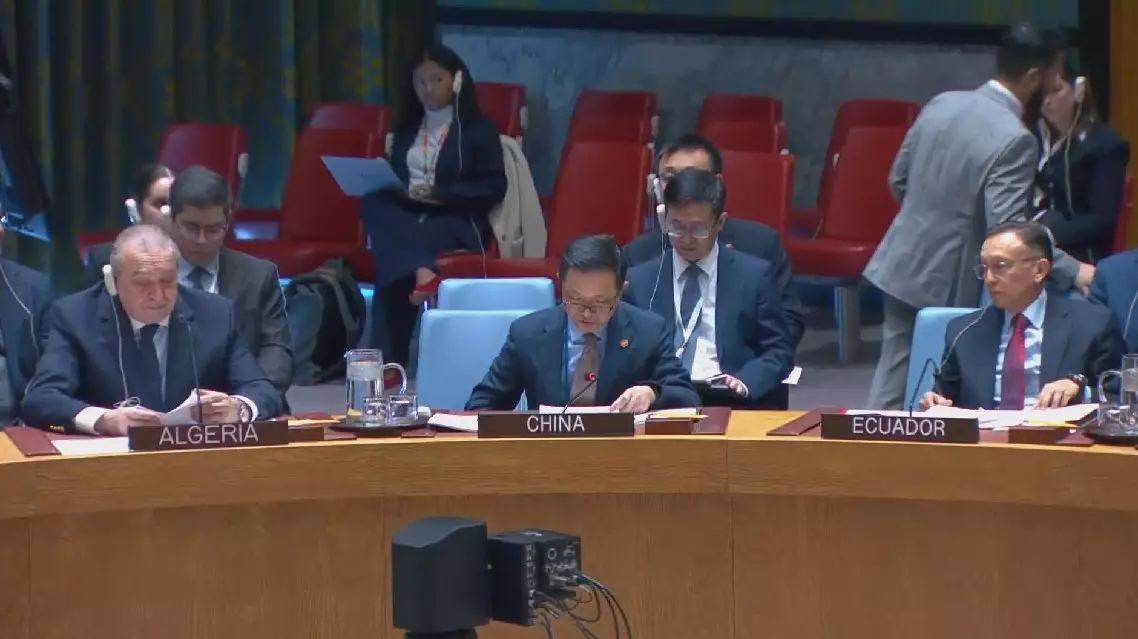China's deputy permanent representative to the United Nations Dai Bing on Thursday called for inclusive coordination and stronger alignment with local priorities related to the Central African Republic and Abyei, a territory contested by Sudan and South Sudan, to enhance stability and peace efforts.
The Security Council on Thursday decided to extend the mandate of the United Nations Multidimensional Integrated Stabilization Mission in the Central African Republic (MINUSCA) until 15 November 2025, mandating it to advance a multi-year strategic vision to create the political, security and institutional conditions conducive to national reconciliation and durable peace.
Unanimously adopting resolution 2759 (2024), the 15-nation organ, acting under Chapter VII of the Charter of the United Nations, decided to maintain current troop levels of up to 14,400 military personnel, 3,020 police personnel and 108 corrections officers.
It also decided to extend the mandate of the United Nations Interim Security Force for Abyei (UNISFA) until 15 November 2025 to maintain the Force's authorized troop and police ceilings and call for a strategic review of UNISFA's effectiveness, strategic objectives and alignment with the evolving regional security situation.
Adopting resolution 2760 (2024) by a vote of 14 in favor to none against, with one abstention, the 15-nation organ, also decided to extend UNISFA's originally authorized tasks until 15 November 2025. Additionally, the Council decided to extend until that date UNISFA's mandate modification, which provides for the Force's support to the Joint Border Verification and Monitoring Mechanism.
China voted in favor of both resolutions, and called on the Security Council to take into full consideration the views of the concerned countries, address the concerns of all parties, demonstrate fairness and inclusiveness, and strive to build broader consensus.
When commented on the extension of MINUSCA's mandate, Dai stated that the Central African Republic's political peace process is at a critical juncture. MINUSCA plays an important role in supporting the country's political process, protecting civilians, and disarming and reintegrating former combatants. Extending MINUSCA's mandate is generally conducive to creating a favorable external environment for the smooth conduct of elections next year and further stabilizing the regional situation.
"We expect the Security Council, after fully hearing the views of the Central African Republic, to better align MINUSCA's work priorities with the country's national development strategies, continuously improve MINUSCA's capacity to fulfill its mandate and enhance its operational effectiveness, thereby making a greater contribution to maintaining peace and stability in the country," said Dai.
Speaking about UNISFA, Dai pointed out that in recent years, the Force has diligently fulfilled its duties under difficult conditions and played a vital role in maintaining stability in Abyei by advancing the political process and mitigating ethnic conflicts. It has been three years since UNISFA was restructured, and the resolution authorizes the UN to conduct a new strategic review of the mission.
Dai expressed hope that the review will fully consider the reasonable opinions of all parties and propose feasible suggestions to enhance UNISFA's operational effectiveness.
"We call on the UN Secretariat to implement the resolution's requirements, lead coordination with all parties, and take robust measures to minimize the impact of regional security situations on UNISFA's equipment transport, personnel rotations, and logistical supplies, and to ensure the safety of peacekeepers. We also expect South Sudan, Sudan, and other relevant parties to provide maximum support for UNISFA to effectively carry out its mandate," said Dai.

China supports UN mandates to enhance stability, peace efforts in Central African Republic









